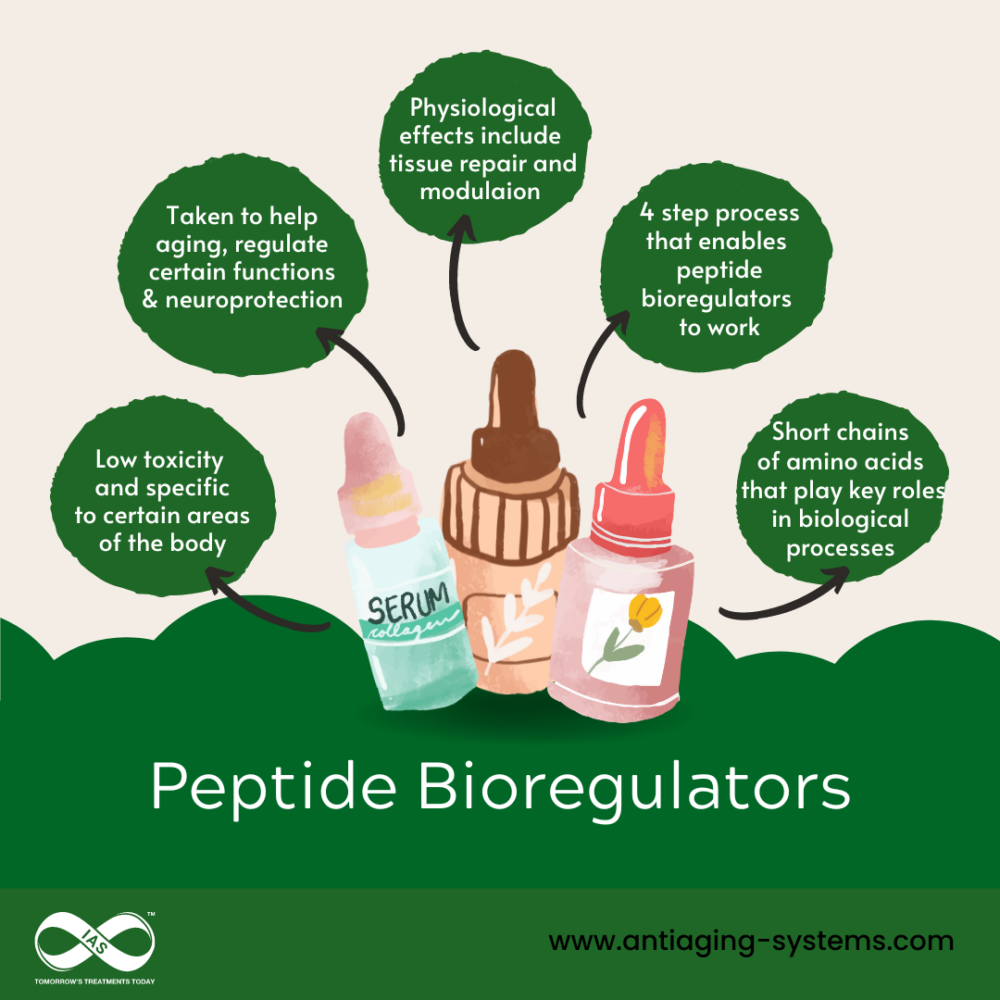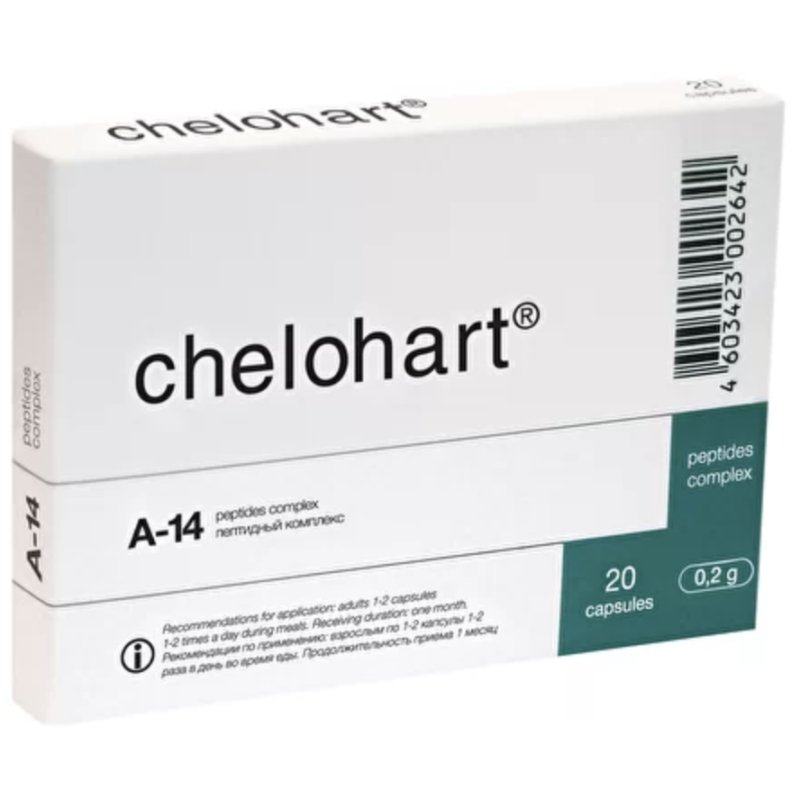How do Peptide Bioregulators Work?
 Peptide bioregulators are short chains of essential amino acids that play key roles in various biological processes in the body. We can look at how they work using a 4 step process, outlined below, which starts with Receptor Binding and ends with the Physiological Effects of the modulation of cellular function.
Peptide bioregulators are short chains of essential amino acids that play key roles in various biological processes in the body. We can look at how they work using a 4 step process, outlined below, which starts with Receptor Binding and ends with the Physiological Effects of the modulation of cellular function.
Peptide Bioregulator 4 Step Mechanism of Action
Receptor Binding
When we take a peptide bioregulator, whatever that particular one may be, the amino acids contained within enter the body and bind to specific receptors on the cell membrane of the area they are targeting. These receptors are proteins that recognize and respond to specific peptide sequences.
Once the peptide has bound to the receptor, a signalling process is initiated inside the cell leading to changes in the receptor protein that activate signal transduction.
Signal Transduction
Signal transduction is the name for the process whereby intracellular signaling pathways are activated – these often involve secondary messengers like cyclic AMP (cAMP), calcium ions, or other molecules. These are all crucial molecules of intracellular signaling pathway tharelay and amplify the signals received at the cell surface to elicit specific cellular responses.
These signaling pathways lead to the activation or inhibition of various enzymes, transcription factors, and other proteins within the cell, which can result in changes in gene expression within cells.
Gene Expression Modulation
As the transcription of specific genes leading to the production of proteins that mediate various cellular functions are modulated, this can either enhance or suppress the synthesis of proteins involved in growth, repair, immune response, and other physiological processes.
Physiological Effects
The end result of supplementing with Peptide Bioregulators are intended to be physiological effects that can include tissue repair, immune modulation, anti-inflammatory effects, neuroprotection, and regulation of metabolic processes.
Examples include:
- Promoting the regeneration of specific tissues by stimulating the proliferation and differentiation of stem cells or progenitor cells.
- Promoting the expression of genes involved in cell migration, angiogenesis, and wound healing.
- Activating the cAMP pathway to increase water reabsorption in the kidneys.
Why take Peptide Bioregulators?
People may choose to supplement with peptide bioregulators for a number of reasons – antiaging is perhaps one of the biggest reasons, but also for purposes such as regenerative medicine, neuroprotection and immune system modulation.
- Regenerative Medicine: To promote tissue repair and regeneration, aiding in the recovery from injuries and degenerative diseases.
- Antiaging: To improve skin health, reduce wrinkles, and enhance overall vitality.
- Immune Modulation: To modulate the immune system, providing benefits in autoimmune diseases, infections, and cancer therapy.
- Neuroprotection: Peptide bioregulators can protect neurons from damage and support cognitive functions, offering potential treatments for neurodegenerative diseases like Alzheimer’s and Parkinson’s.
Are Peptide Bioregulators Unique?
In short, yes – each peptide has an ability to bind to specific receptors and target specific cells/tissues. With this ability, they can benefit specific areas of the body with no impact on other areas, and work alongside other peptides if taken alongside.
They also have low toxicity as the make up is similar to other natural body components.
However, it must be noted that peptides are susceptible to degradation in the body by enzymes which can limit their effectiveness if this happens. Different delivery systems other than oral use are being developed to counteract this, such as transdermal patches.

